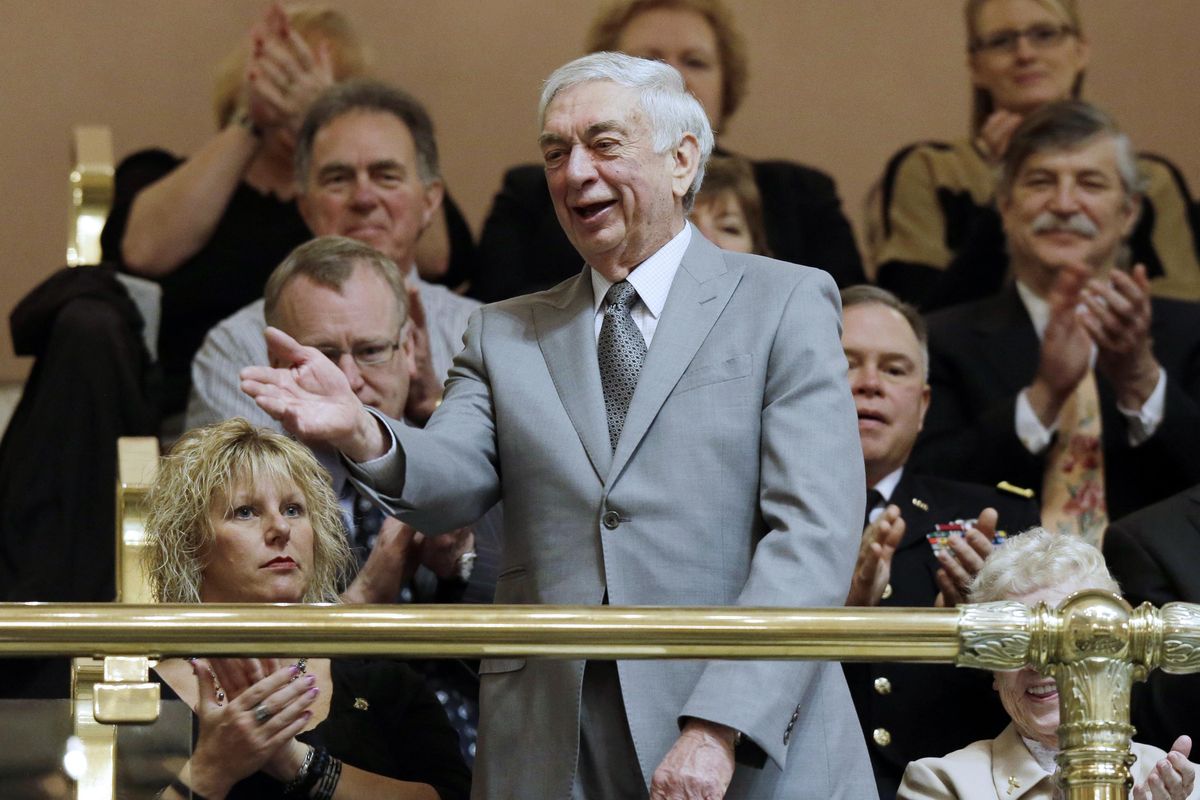Former Washington Gov. Mike Lowry, also a congressman, dies

Mike Lowry, an unabashed liberal who represented Seattle in Congress for a decade and served four years as Washington’s governor, died Monday after complications from a stroke at age 78.
Born in St. John, Washington, where his family had homesteaded in 1882, Lowry was elected to Congress in 1978 from Seattle’s 7th District, and was easily re-elected four times.
He ran twice for the U.S. Senate, losing to Dan Evans in 1983 in the special election to fill Scoop Jackson’s seat and again in 1988 to Slade Gorton. He took four years off from electoral politics, then jumped into and won the 1992 governor’s race to replace Democrat Booth Gardner, who was retiring.
He pushed Washington into the forefront of health care reform in the early 1990s, even though national reform efforts faltered. He was an outspoken supporter of abortion rights and opponent of the nuclear arms buildup, even though his state had a high concentration of military installations, with both nuclear-armed bombers and submarines.
A news release from his family announcing his death called him “a courageous leader who was often willing to take early stands on sometimes controversial issues, and this courage, plus his straightforward nature, garnered respect from those in all political parties,” the statement said.
Long an advocate of international trade that became crucial to the state, Lowry was credited with saving the Export-Import Bank’s direct loan program. He was on the House Budget Committee and worked on wilderness and marine sanctuary legislation and other issues.
Gov. Jay Inslee said Lowry “served with compassion and humility.”
“He had a big heart and cared deeply about the people of this state,” Inslee said in a statement.
Senate Majority Leader Mark Schoesler, R-Ritzville, called Lowry a politician whose word you “could take to the bank.”
“Mike was a larger than life character here at the Capitol and dedicated himself to public service for many years,” Schoesler said in a statement. “He made friends on both sides of the aisle.”
State Attorney General Bob Ferguson called Lowry a friend and mentor: “You always knew where he stood on the important issues of the day. He was unafraid to advocate for policies that were right, but unpopular.”
After Lowry gave up his safe House seat to run unsuccessfully for the Senate in 1988, he returned to Seattle and became a government professor at Seattle University and worked on a number of civic projects, including serving as chairman of the Washington Wildlife and Recreation Coalition.
Inslee lauded his work on health care and welfare policies as governor.
“Mike led efforts in the 1990s to provide health care for all Washingtonians and his work lives on today through coverage for low- to moderate-income families,” Inslee said.
Lowry decided not to seek re-election after a single four-year term. His political stock, already low after a 1993 tax increase, plummeted when his deputy press secretary, Susanne Albright, accused him of sexually harassing her and using crude and offensive language.
Lowry denied any wrongdoing but agreed to a $97,500 out-of-court settlement.
Lowry graduated from Endicott High School and attended Washington State University.
He went to work for the state Senate Ways and Means Committee, serving as staff director from 1969 to 1973. He later became public affairs director for a nonprofit health organization for two years.
In 1975, he was elected to the King County Council, becoming chairman in 1977. He was elected president of the Washington Association of Counties in 1978.
Lowry is survived by his wife, Mary, daughter Diane Lowry Oakes, son-in-law Scott Oakes, two grandsons, sister Suellen Lowry, two nephews and a niece.
This report includes biographical material written by former AP reporter David Ammons and reporting from Spokesman-Review staff writer Jim Camden.